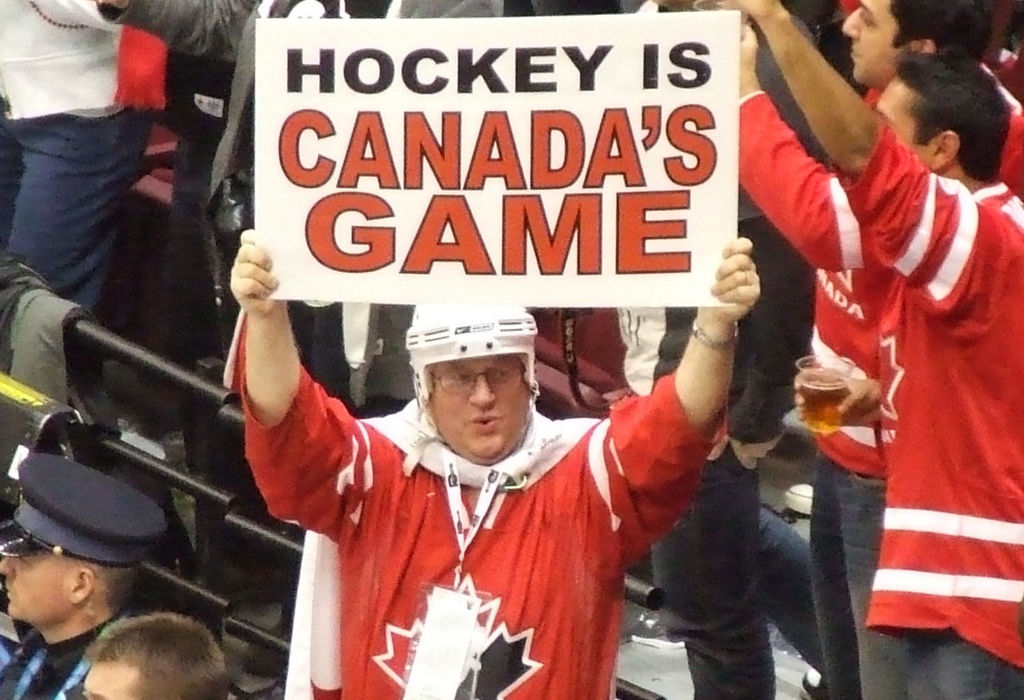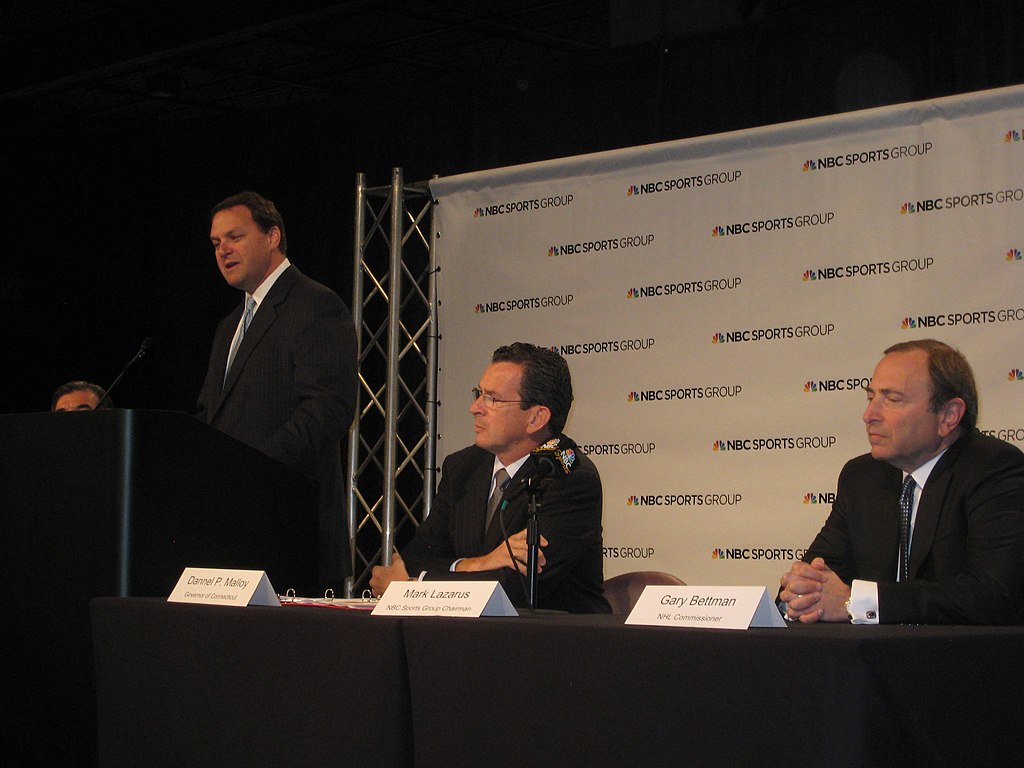By Alec Roberson
As many of you are likely aware, recent allegations have surfaced involving members of Canada’s 2018 world junior championship team allegedly sexually assaulting an individual. That individual reached a settlement with Hockey Canada. However, more noteworthy is Hockey Canada’s handling (or lack thereof) of that sexual assault claim. And, as further information has shown, their handling of sexual abuse allegations over the years.
Since those allegations, shocking information has surfaced and proven to be damaging to Hockey Canada. Much like a boxer taking repeated head shots, the dominoes started falling fast. First the sponsors pulled out of supporting the organization, followed by the Canadian government freezing funding to Hockey Canada and even Prime Minister Trudeau publicly shaming the organization for its handling of the situation. While there are many facets to this situation worthy of their own story, we wanted to focus on one specific aspect – the reserve fund used by Hockey Canada to pay sexual assault settlements.
Part I of this two-part article will look at the backstory and the fund itself. Part II will look at Hockey Canada’s response and potential solutions to the issue.
Who is Hockey Canada?
Hockey Canada is the umbrella organization over most amateur and youth hockey in Canada. Hockey Canada is responsible for the direction, organization and oversight of these leagues. In addition, Hockey Canada partners with the Canadian Hockey League (CHL) even though it is not a member organization. Hockey Canada also oversees the Canadian junior hockey team participating in the world junior championships each year.
The Canadian government has an interest in supporting the organization and provides it with Federal funding. This Federal funding comprises around 6% of all funding for Hockey Canada. As another source of funding, most players participating in one of Hockey Canada’s member organizations have to pay registration fees.
Being a major sports organization in Canada, many companies also sponsor the organization as a great marketing opportunity. This provides additional funding to Hockey Canada. However, as is seen with many athletes who get into trouble, the sponsorship value to the companies is only as good as the individual or organization that is sponsored.
The Incident
Allegedly, in 2018 multiple members of Canada’s 2018 world junior championship team sexually assaulted a female in London, Ontario after a gala event. The situation was more or less swept under the rug and handled behind the scenes. In 2022, after the alleged victim filed a claim for damages against Hockey Canada, the CHL, and the players involved, Hockey Canada settled the claim for an undisclosed amount of money with the victim.
One particularly noteworthy fact surfaced from this situation. It was revealed that Hockey Canada had a fund set aside to pay for certain liabilities, including sexual abuse claims, that insurance would not cover. This fund was allegedly set up in a way similar to how other organizations do and was used for many normal costs and expenses including insurance premiums. But…. this fund was also used to pay this specific settlement.
Additionally, there have been numerous sexual assault allegations against or involving Hockey Canada in the last few years. Purportedly, Hockey Canada used that reserve fund to pay other sexual assault settlements. There are many things troubling with this that have left Canadians dumbfounded. Did the players that participated in such assault not have any repercussions? Has Hockey Canada been making adjustments to deal with such instances throughout its organization? And, for purposes of this article, is this reserve fund really held to pay off sexual allegations without much, if any oversight?
Following the Situation
Please know there is a lot going on here with new developments constantly. If you want to read more about all of the ins and outs of this situation, I recommend you follow Rick Westhead and Katie Strang. They have done an excellent job reporting on this as it has progressed.
But we want to take a moment to look at this reserve fund that Hockey Canada used to pay the sexual assault settlements. Is it legal? Is it ethical? Should it be?
Common Similar Situations
At first reaction, a fund to pay for sexual abuse settlements seems disgusting at best. But at a general level, this is not entirely out of place. Most sports leagues, organizations, entities, etc. have various types of insurance to deal with potential lawsuits and claims. For example, both the NFL and the NHL had insurance that at least partially paid for their respective concussion lawsuit settlements.
Now insurance doesn’t come with its own set of difficulties. In 2020, the NHL battled insurance companies in court over what its policies should have covered in the NHL’s concussion lawsuit settlement. The NFL had a similar battle with insurance companies following their concussion lawsuit settlement. Arguments over covered claims under a policy can lead to these issues. The insurance companies don’t want to pay millions to cover these settlements if they do not have to. Depending on the policy, this can lead to the insurance companies actually arguing against the action or inaction of the insured organization. This is presumably one reason why Hockey Canada had a set aside fund – to cover whatever insurance did not.
Why Should Hockey Canada have a Reserve Fund?
At its core, this is smart for the organization. Entities routinely use insurance and set aside funds to hedge against potential losses in revenue, unexpected expenses or other liabilities. It’s like an individual having an emergency fund and insurance, but for the organization. So, for longevity and sustainability of Hockey Canada, these are very important.
But should insurance and the reserve fund be available for everything? And should it be used in such a manner that it acts like a hush fund with little to no repercussions for the fault?
Following the loss in revenue and increased expenses during the COVID-19 pandemic, the NHL sued multiple insurance companies for denied reimbursements related to such losses and expenses. A lot of the issue surrounded what terms in the insurance policies related to losses from the pandemic actually meant. But that was more of a contractual interpretation argument and not so much a public policy or ethical one. And that potential gap in coverage is what a set aside fund could be used for.
Should Insurance and/or Reserve Funds Pay off Sexual Assault Settlements?
However, should insurance and/or a fund be used to pay sexual assault settlements? Sure insurance and savings can pay for accidents (think negligence or professional malpractice insurance) as well as things outside of the organization’s control (think the COVID-19 claims). But where is the line?
Insurance and a reserve fund differ here too. As seen above, the insurance payments are subject to the oversight of the insurance company and the terms of the policy itself. A reserve fund may have little to no oversight on its use. So if you have a fund set aside to pay sexual assault settlements without any serious recourse, are you essentially saying to your members and participants, do what you want, we have you covered? This seems like a pretty massive conflict of interest between preserving the organization and ensuring the organization operates under its policies, terms and conditions and applicable law. In particular here, safe from sexual abuse.
Did Taxpayers Ultimately Pay the Sexual Abuse Settlement?
Hockey Canada claimed that even though registration fees supplied the fund, no part of the settlement consisted of Federally provided money. Assuming that is true, isn’t it still sort of form over function? Think about it. If Hockey Canada did not directly use Federal funding for this fund or settlement, then sure, they did not directly use taxpayer money. HOWEVER, because that Federal funding is available to pay for many other expenses or liabilities, that means there is other money left over that is used to pay off sexual abuse settlements. So, I would argue that yes, they did (at least indirectly) use taxpayer money for that fund. And this is why Canadians, and for that matter the Prime Minister, are partially so upset.
Are Participants Paying for Hockey Canada’s Defense?
There’s another potentially trouble angle to this as well. It was clear that this fund consisted of (at least partially) entrant and registration fees of players participating with Hockey Canada. So, are the players therefore paying for their own insurance against sexual abuse claims? Or are they paying for HOCKEY CANADA’s insurance against such claims? Or are innocent players and their families paying? Maybe all of the above. Players are paying to play so preservation of the league is important. But again, should the organization be able to self-insure against something so heinous? Insure against accidents, sure, but this? Whether it is from participant’s fees or taxpayer funds, it seems like a stretch.
Pressure for Hockey Canada to Change
Maybe even more concerning is what incentive did Hockey Canada truly have to remedy such behavior? Or the players involved? With sponsors pulling out, Federal funds frozen, and overall public perception turning negative, now there may be some incentive. Hockey Canada has claimed that they are no longer using such a reserve fund to pay sexual abuse settlements. Is this admitting guilt? Maybe to some extent. They clearly know and have said that things do have to change. (Maybe that was just good PR but regardless it was said). Whether that can be used as evidence in court is questionable. For example, generally defendants making corrections to faulty products in the US cannot be used as evidence of guilt. This is for public policy reasons.
But prior to this incident, if they were essentially self-insured and could keep things in the dark, who holds them accountable? As seen in the sexual abuse class action lawsuit against the CHL (check out our two-part article on such topic here and here), until instances are brought into the light, addressing them seems to go to the back burner sometimes.
The Canadian Government’s Response
Following these revelations, the Canadian Federal government decided to freeze Hockey Canada’s funding until the organization signs up with a Federal agency that has the ability to independently review and investigate abuse claims and then make appropriate sanctions. In addition, it has ordered a forensic audit over Hockey Canada’s finances and governance.
Hockey Canada received $14 million in Federal funding in 2020 and 2021, including $3.4 million related to COVID-19 subsidies. As mentioned above, Federal funding makes up about 6% of Hockey Canada’s total funding. While 6% doesn’t seem like much, you can see these are still fairly substantial funds. There are other requirements that Hockey Canada must adhere to if it is to continue receiving Federal funds.
Notably these include (1) becoming a signatory to the Office of the Sport Integrity Commissioner; (2) disclosing the recommendations it received from Toronto based law firm Henein Hutchinson, LLP related to its investigation of the sexual abuse allegations; (3) detailing its plans to implement change within the organization; and (4) becoming a signator to the Universal Code of Conduct to Prevent and Address Maltreatment in Sport. In effect, Hockey Canada would sign over the responsibility of investigating sexual abuse allegations to the Office of Sport Integrity Commissioner.
You now have a high level rundown of the situation. Stay tuned as we explore Hockey Canada’s response and potential solutions for handling similar situations in Part II of this series.
Post image attribution: By: Kane Farabaugh, Public domain, via Wikimedia Commons




